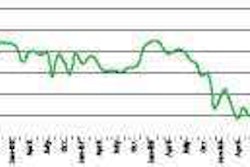Are you working your CSA numbers?
Vicarious liability has shippers, brokers worrying
By Henry Seaton
Q We are a motor carrier and operate about three dozen over-the-road trucks, including company equipment and owner-operators. We are heavily dependent on brokers for backhaul freight to service our hometown shipper. We recently have received new contracts in which brokers state they will not use us when Comprehensive Safety Analysis 2010 goes live if we are “marginal” or “deficient” in any of the reported six BASICs areas. We never have had safety problems before or have been audited. We just got a look at our CSA scores, and they show we are “deficient” in three areas. How can this be, and what can we do?
 Henry Seaton -- [email protected]
Henry Seaton -- [email protected]A You and most of the small carriers that comprise more than 95 percent of the licensed, authorized for-hire carriers have been figuratively “asleep at the wheel.” Unless the Federal Motor Carrier Safety Administration reconsiders or is blocked judicially, the agency intends to publish CSA 2010 data for all to see in late November or early December. Although FMCSA is, I believe, charged by Congress with the sole job of determining safety fitness, the agency proposes to publish all its unscrubbed data concerning every motor carrier. It appears to be inviting shippers and other “stakeholders” to use the data and the pejorative characterization of carriers as “marginal” or “deficient” in deciding which carriers to use.
Shippers shouldn’t have to second-guess FMCSA.
Many shippers and brokers are frightened of vicarious liability because of a couple of bad decisions and think that if they use a carrier labeled “marginal” or “deficient,” they will pick up a huge tab for negligent entrustment if, God forbid, the carrier so labeled is involved in a fatal crash.
The practice you report of prospectively barring carriers labeled as “deficient” or “marginal” in contracts is, I fear, widespread. FMCSA might be able to work with the CSA methodology in order to establish progressive intervention, but the methodology is not hard science or accurate math that can or should be used by any shipper to judge a carrier’s safety. The data used is based on warnings and citations, not convictions, and presents some real due process issues. For example, lumped into the same peer groups are carriers that use paper logs that are twice as likely to have “fatigued driving” points – based solely on paperwork violations – as carriers in their same peer group who do not log or use electronic onboard recorders.
Vicarious liability should not be an issue in shipper selection of freight haulers any more than it is an issue for the consumer and any other regulated industry where the government exercises preemptive licensing and credentialing authority. This point has been made to the agency, and hopefully the issue will be addressed by a postponement of public release or other appropriate restriction in the use of the data. If not, judicial or legislative action will be necessary to stop the unintended consequences on the willingness of shippers and brokers to use small carriers.
So what can you do for now? You can focus more heavily on safety or consider using EOBRs if you are “deficient” in the fatigue BASIC. EOBRs will improve your scores over time even if they actually might not reduce fatigue. You can check every light and brake more frequently if you have high maintenance scores. You could put governors on trucks if you have speeding violations. Over time, your high scores gradually will improve. If you do not lose too much business in the meantime, perhaps there will be more freight for you to haul.
— Henry Seaton is a lawyer who represents motor carriers.
IN BRIEF
* Landstar System is not required to disclose the actual cost of chargeback items, and flat-fee chargebacks are allowable, the U.S. Court of Appeals for the Eleventh Circuit ruled last month. The Owner-Operator Independent Drivers Association had challenged Landstar’s banking fees and other charges and had lost at the district court level. The appeals court also confirmed that carriers may profit on chargeback items and that owner-operators must prove actual damages related to violations of federal truth-in-leasing regulations.
* The Federal Motor Carrier Safety Administration and the Civil Rights Division of the U.S. Department of Justice announced $55,000 in fines against Tornado Bus Co. Inc. of Dallas for violating passenger carrier accessibility requirements under the Americans with Disabilities Act. The bus company also must upgrade its fleet to meet ADA requirements by February 2011 or lose its operating authority.
* The U.S. Court of Appeals for the Eighth Circuit rejected the federal law racial discrimination claims of an unsuccessful applicant for a job with Con-way Freight on the grounds that she would not have gotten the job anyway because of Con-way’s policy of disqualifying candidates with theft-related convictions. The appeals court did not rule on the applicant’s claims under Missouri law.
* Several law firms announced that they were investigating possible breaches of fiduciary duty and other violations of state law by members of the board of directors of Dynamex Inc. in connection with their efforts to sell Dynamex to Greenbriar Equity Group.
Court: FMCSA must propose HOS docs rule
The Federal Motor Carrier Safety Administration has said it plans to issue a proposed rule by the end of this year on supporting documents for hours-of-service compliance, but now it has no choice. The U.S. Court of Appeals for the District of Columbia Circuit on Sept. 30 ordered FMCSA to issue the proposed rule by Dec. 30.
In January, the American Trucking Associations asked the appeals court to issue a “writ of mandamus” to order FMCSA to issue a supporting documents regulation that Congress mandated as part of the Hazardous Materials Transportation Authorization Act of 1994. FMCSA and ATA set the lawsuit aside this spring in an effort to settle their differences, but in July ATA said settlement talks had failed and asked the court to rule.
For years, FMCSA has used regulatory guidance and policies rather than formal regulations to govern motor carriers’ supporting documents requirements. While this approach has been frustrating for many carriers and has led to several court cases, the lack of regulatory language became a major issue in December 2008 when FMCSA declared that it now considered satellite location data from mobile communications systems to be supporting documents.
In an effort to settle the dispute unilaterally, FMCSA issued a new policy in July that relieved carriers using qualified tracking systems from some 15 specific paperwork requirements. ATA responded that the policy was insufficient because carriers needed regulatory certainty.











